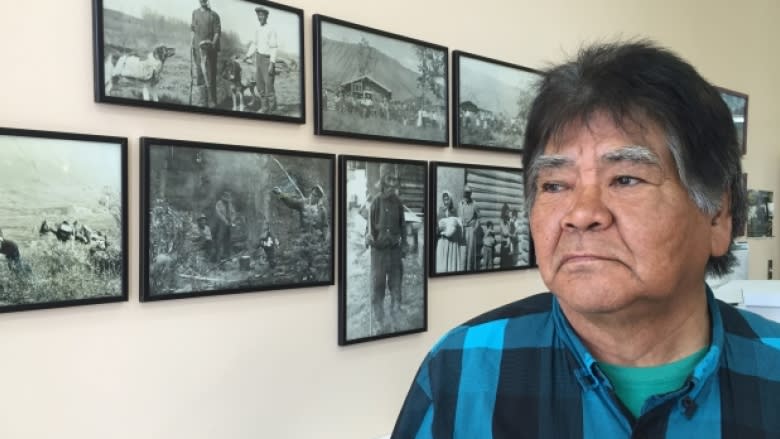In Yukon, Maxime Bernier suggests changing or scrapping Indian Act
Conservative party leadership candidate Maxime Bernier is the latest to suggest the Indian Act should be abolished, or changed.
At a stop in Whitehorse on Sunday, Bernier said he believes the current act keeps people in poverty.
"I think there's a way to be more efficient," he said to a group of about 25 people at the Kwanlin Dun Cultural Centre. "And there's a way to bring more economic growth on reserves and working with First Nations to bring more private investment."
Bernier says it's too early to say what should replace the act first written in 1876, if it were to be scrapped. He's pledging to consult on the matter.
"My policy will be based on respecting the treaties that we signed together. We'll have consultation. I don't have the solution to tell you. I am here to do consultation and next time I'll meet with First Nations leaders and we'll see what we can do," he said.
Bernier said he favours a system that would allow private ownership on what is now reserve land.
He said changes would not necessarily affect the level of federal funding, but would require "new treaties" to be signed and a changing of relationships.
"I want to think outside the box, with new principles. It would be status quo on the money right now, but we have to try [new] ways to deal with each other. And after that we'll see the impact. We have an obligation to respect the treaties we signed," he said.
Bernier acknowledged it would not be easy.
'Replace it with what?' asks chief
In Yukon, only the Liard First Nation, the Ross River Dena Council and the White River First Nation are still governed by the Indian Act.
The territory's 11 other First Nations have negotiated self-government agreements.
Jack Caesar is Chief of Ross River Dena Council.
When asked his thoughts by CBC he replied with only one sentence.
"The Indian Act... we would like to see the end of it. But replace it with what?"
Policy marks a change from Harper conservatives
Bernier isn't the first CPC leadership candidate to raise the idea. Steven Blaney and Kellie Leitch have also called to abolish the Indian Act.
The idea marks a change from former prime minister Stephen Harper, who did not support abolishing the Indian Act but nevertheless pushed for reform including the First Nations Financial Transparency Act.
Bernier says he supports that act and would like to see it reinstated.
Bernier was in the Yukon to meet with local CPC membership. He says he's consulting with Northerners to inform his Northern policy
Former Yukon MP Ryan Leef has joined Bernier's campaign.
Echoes of the White Paper
The idea of abolishing the Indian Act has not only been voiced by federal Conservatives.
In 1969, Pierre Elliott Trudeau and then-Indian Affairs minister Jean Chrétien introduced what would become known as the "White Paper."
The discussion paper proposed phasing out the entire reserve system to instead transfer land to private ownership among Indigenous people.
The idea was abandoned after widespread opposition from Indigenous leaders at the time.
However, many Indigenous leaders in Canada have said the Act is racist, antiquated and needs to be replaced.
Bernier said the status quo is not working and said Canada "needs to deal with [First Nations] on a new basis."
On Feb 19, Bernier also spoke about other policy ideas such as a flat income tax, reducing corporate taxes, reducing the size and scope of the federal government and being open to the idea of provinces or territories approving privately-run healthcare services.
Correction : A previous version of this story quoted Maxime Bernier as saying Canada "should abolish the Indian Act." In fact, Bernier was paraphrasing other Conservative leadership candidates.(Feb 20, 2017 8:46 PM)




